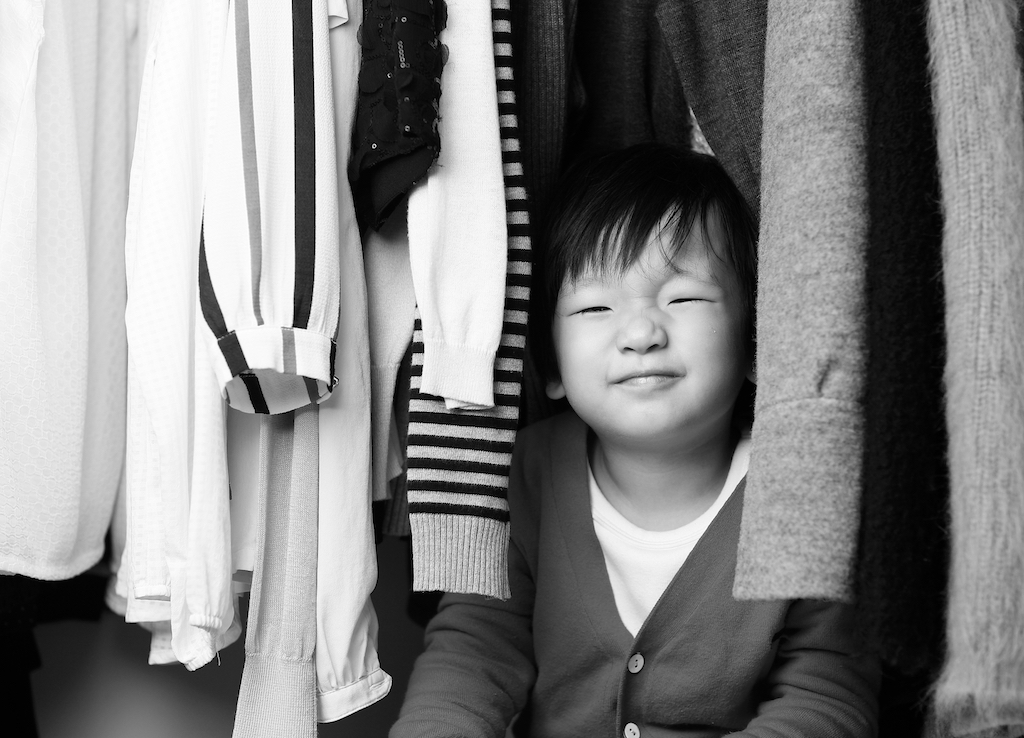SingaporeMotherhood | Parenting
July 2016
An Open Letter from a Parent of a Child with Autism

It is every parent’s wish for their child to be healthy and normal. Being told otherwise by a teacher, doctor, or a bystander can be quite a shock. I always thought my son was a pretty normal child except for his tantrums (quite the norm for kids, right?). He goes to preschool, and except for the occasional quarrel with his classmates, there is nothing to indicate he has a learning disability. However, he was recently flagged out in class for odd behaviour and subsequently diagnosed with mild autism.
(See also: My Child has Autism. Now What?)
Having a child with autism has opened my eyes to how society views people with invisible disabilities. It is unfair to point a finger at the average person and insist he includes a peer with a disability into his social group. More often than not, he hasn’t a clue on how to actually be inclusive. Hence this is an open letter to the general public on how they can be more inclusive towards people with invisible disabilities.
1. Disability is just One Facet of a Person
If I were to ask you to describe yourself, you may say (for example) that you’re a 30-year-old female who works full time, likes watching Korean dramas, hates cockroaches, hates cooking, and struggles with self-esteem issues. In the same way, my son is a young boy studying in a preschool, who likes puzzles, hates sudden changes, is good at reading, but struggles to manage meltdown triggers. He also has autism.
(See also: Coping with Your Child’s Special Needs Diagnosis)
2. Meltdowns happen for a Reason
Almost any environment can be harsh for children with special needs. Because they may be unable to cope with the external influences around them, and may be unable to express their discomfort, they may react — by having a meltdown. Ms Peggy Zee, an early childhood consultant who founded the Zee School (a preschool for typically-developing children and children with special needs), shares the top three triggers causing meltdowns in children with special needs:
• Sensory Overload
Imagine a loud honking magnified 10 times, or breathing in an extremely pungent smell that makes you vomit. You hate loud noises because they irritate you. But for some children with special needs, these loud noises are not simply irritating. Instead, they are a form of sensory stimuli that overloads the child’s senses. While an average person may be able to tune such stimuli out, children with special needs may have difficulties doing so. Hence they resort to meltdowns to release their pent-up emotions.
So what can you do if you see a parent struggling with a child’s meltdown? Either give her space to calm her kid down, or ask if you can lend a helping hand. What can you do? You can help with with side tasks — like pushing the pram — so she can focus on managing her kid. Older children and people with disabilities can function just as well as you can in our environment, with a few adaptations. Ask about their likes and dislikes, and adapt the work or class environment to their needs. This will help them to reduce episodes of sensory overload.
• Anxiety
People with autism often have anxiety about, and struggle with social situations. They have problems with knowing what to say, eye contact, appropriate body language, and initiating conversations. They may behave in ways that seem strange, or socially awkward. I have to explain to my son about the kind of appropriate behaviour he should follow, even in simple situations. It takes a while, but staying calm and giving him clear instructions helps him to behave in a publicly acceptable manner.
• Communication difficulties
If your child has a classmate with a disability in school, ask your child to observe his classmate, and find out how he expresses himself. Not everyone can express himself eloquently through speech. Your child’s classmate may be better at other forms of communication such as hand gestures, pictures, or written words. You can also introduce your child to books that teach kids about understanding their peers with disabilities. If you are an educator, these tools for teachers may help.
(See also: Building an Inclusive Society in Singapore – Start with Children)
3. Overcome the Stigma of Disability
In Singapore, it often seems that perfection is our one and only goal. Hence it is difficult to think of a child with a disability as a child with strengths. More often than not, the general public shuns and avoids people with disabilities. I’m not blaming anyone; it’s human nature to magnify the disability instead of appreciating the abilities.
But overcoming the stigma of disability can come a long way in helping people with special needs become accepted in society. Daniel Koh, a psychologist who works with parents of special needs children, shares the top three difficulties that parents of children with disabilities encounter:
• Rejection through physical behaviour
Other people may walk away or pull their children away when they see a person with a disability. Remember that we parents and adults are the bridge between the children. The child models the adult’s behaviour. When you show acceptance, compassion and love towards a person with special needs or talk sincerely to one, your children will learn the same.
• Verbal comments or misunderstandings
Parents of children with disabilities often have to apologise, explain the disability, and shoulder the blame when their children are involved in incidents, because others do not give them the benefit of the doubt. Mr Koh advises parents of normally-developing children to teach and discuss with them about the needs of their disabled peers: Be gentle and sensitive, be gracious, teach your child to observe the situation, and teach him how he can respond in a positive manner towards his peers with disabilities.
• Being ‘invisible’ to strangers
As I struggle to move with my son in crowds or find seats on public transport, I have learnt not to expect any charity. When my son has meltdowns in public, people give us ‘eye power’ and mutter among themselves. These actions hurt us and reinforce the negativity that our children cannot be accepted in society. Society’s “tsk tsk” makes it even more difficult for some parents to seek intervention for their special needs children.
It is not unusual for parents of special needs children to feel lonely and sad, lacking in support and encouragement. On top of that, if they haven’t already done so, they have to come to terms with admitting that their child has a problem. This is a big step, and depending on how families view it, can bring relief or distress for everyone in the family.
(See also: What If I Have a Child with Special Needs?)
4. Inclusiveness has to do with YOU!
Government and private sector efforts have led the way in beefing up social services to help those with disabilities. However I honestly think that the biggest challenge that faces us is for those with disabilities to be included into society.
Humans can be quite hypocritical don’t you think? We want to be invited and included in social groups. This makes us feel needed, wanted and appreciated. We hope people will acknowledge our strengths and accept our weaknesses. But when we are asked to extend the same to those with disabilities, some may say: “Why bother?”
(See also: 14 Life-Changing Tips to Know if You are Struggling with a Child with Autism)
As long as Singapore remains a playground for the elite and near-perfect, the dream that my son (and others with disabilities) will be given the same level of societal and workplace inclusiveness as any other person without a disability will remain just that. A dream. To be honest, I wouldn’t ask for complete inclusiveness. That’s just too much to expect. But occasional acts of kindness, acceptance, and love will go a long way in giving hope to people with disabilities, and their parents too.
Header image: Cody Davis on Unsplash
All content from this article, including images, cannot be reproduced without credits or written permission from SingaporeMotherhood.
Follow us on Facebook, Instagram, and Telegram for the latest article and promotion updates.








